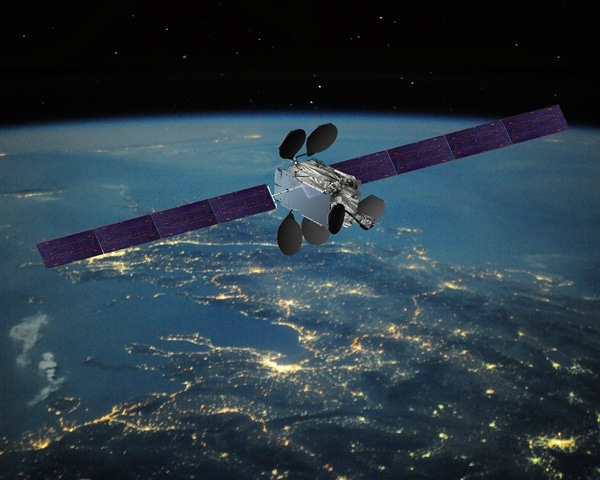OneWeb, the financial equivalent of a big black hole, has launched another load of broadband satellites into the big black.
August 23, 2021

OneWeb, the financial equivalent of a big black hole, has launched another load of broadband satellites into the big black.
The UK-based company said on Sunday that it has successfully put a further 34 low Earth orbit (LEO) satellites into space, bringing its total to 288. It aims to offer global coverage at some point next year, expanding its fleet to 648.
“We are seeing huge demand for our services from global customers, and we are incredibly excited about scaling our network ahead of its commercial launch. This success is down to our talented team and partners around the world, who continue to work relentlessly every day to deliver OneWeb’s constellation and bring connectivity to those in the hardest to reach places,” said OneWeb CEO Neil Masterson, in a statement.
This success can also be attributed in part to successive rounds of eye-watering investments that have saved OneWeb from bankruptcy and fully funded its network deployment.
Earlier this month, South Korean conglomerate Hanwha became the latest punter to buy into OneWeb, paying $300 million for an undisclosed stake and a seat on the company’s board. A few months ago, French satellite player Eutelsat invested $550 million into OneWeb.
Lest anyone forget, in 2020, OneWeb was on the verge of oblivion. Having spent $3.4 billion of investors’ money, the company went bankrupt last March. It was brought back from the brink last November by the UK government and India’s Bharti Global, which each paid $500 million for the privilege. The latter recently announced it will exercise a call option later this year that will see it invest a further $500 million into OneWeb.
Once that option is exercised, OneWeb will have raised $3.2 billion since its November rescue. Add to that the $3.4 billion that has already – and quite literally – gone into the ether, and the aptness of the financial black hole analogies becomes obvious.
But then, satellite broadband is an expensive game to play. Starlink, the satellite broadband company owned by Tesla CEO Elon Musk, aims to deliver coverage in hard-to-reach areas with a constellation that will eventually number in the tens of thousands. Musk recently told the audience at this year’s Mobile World Congress that he expects Starlink to burn through $5-$10 billion by the time it turns cash-flow positive. Investments in ongoing improvements and technological advancements could take that spend up to $20-$30 billion over time, he said.
Despite the high upfront costs, there appears to be no shortage of interest in satellite broadband.
In July, Inmarsat announced plans to create a so-called multi-orbit constellation comprised of 150 satellites. The UK-based satellite operator plans to invest at least $100 million into the project.
Earlier that same month, a consortium consisting of Virgin Media O2, Amazon Web Services (AWS), and Darwin Innovation Group, revealed they have been testing a device pitched at connected vehicles that automatically switches between 5G and satellite connectivity depending on availability.
Use cases like this are fuelling demand for ubiquitous coverage delivered from orbit. According to Northern Sky Research (NSR), the influx of satellite broadband players will contribute to the manufacture and launch of almost 24,700 satellites over the next decade. Investors like Hanwha, Bharti and the UK government will expect a healthy return on their outlay, but with so many players and competing constellations, there can be no guarantees.
About the Author(s)
You May Also Like








.png?width=300&auto=webp&quality=80&disable=upscale)


_1.jpg?width=300&auto=webp&quality=80&disable=upscale)


.png?width=800&auto=webp&quality=80&disable=upscale)